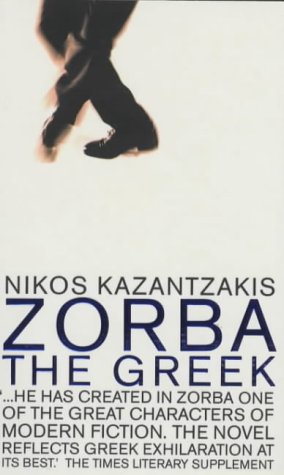Based on this and Zorba, Kazantzakis was a bit like D.H. Lawrence: the first highly educated member of a working family, and suffering a crisis of masculinity as a result. But with Cretan shepherds instead of Nottinghamshire miners.
This book in particular, which is about a rebellion against the Turks, exhibits a glamorous, nostalgic view of the macho culture of Crete; manly men who sweat and fight and drink and feud and hold to the kind of code of honour that largely involves killing people at the smallest perceived slight. And who despise book-learning.
I don’t want to be unfair; the book is more nuanced than that account might suggest, and I don’t think Kazantzakis is whole-heartedly endorsing the palikari warrior culture he portrays. But considering the way his characters behave, he manages to seem a lot more admiring of them than I would be.
It’s also worth pointing out that the main Turkish character in the book is just as much of a palikari as any of the Greeks, so it’s not completely one-sided in that respect.
Anyway, leaving nationalism, gender politics and Kazantzakis’s internal class struggle aside for a minute, I enjoyed it. It’s a big dramatic novel full of striking characters and action, and if it edges into melodrama and stereotype, well, it’s that kind of book.
